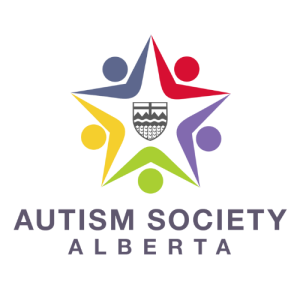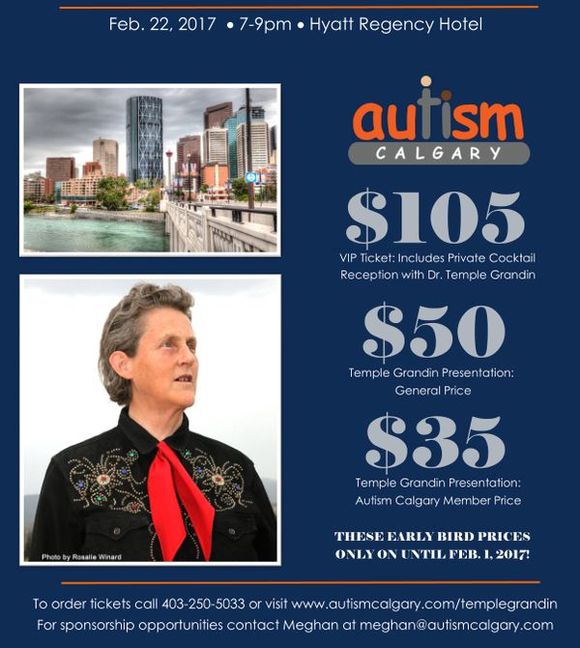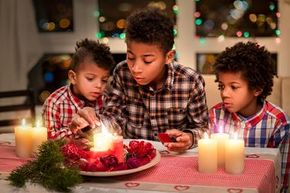December News from the Autism Society of the RMWB
 It has been a very busy month for the Autism Society of the Regional Municipality of Wood Buffalo, and we have had great success with all our events since our last update.
It has been a very busy month for the Autism Society of the Regional Municipality of Wood Buffalo, and we have had great success with all our events since our last update.
We had a great turnout to our movie night! A lot of parents thanked us and asked that we try to put on more of these events, and we are now looking hosting an adult/teen movie night in the new year.
We have also been getting amazing feedback on our visit from Dr. Anthony Bailey, Dr. David Nicolas, Dr. Deborah Barrett and Nancy Gale. Our community is grateful to them for taking the time to come all the way up here to give us some wonderful information and advice.
Our fundraising efforts have been going well, but raising funds is challenging in a community that is still recovering from the events of the summer. A lot of our businesses are still struggling, but we were amazed that we managed to sell twice as many poinsettias as our initial target!
Our Christmas party was a hit, too! We had almost double the kids from last year – almost 70 children had a wonderful time visiting with Santa and enjoying the bouncy castles. They all loved their gifts from 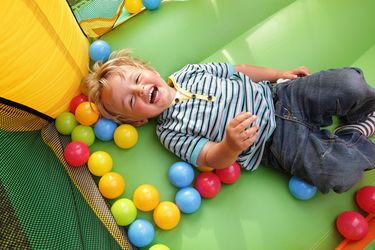
We are all excited for the New Year and all the great things we have planned for 2017. Merry Christmas and a Happy New Year from the Autism Society of the R.M.W.B.!
Sincerely,
Autism Society of the Regional Municipality of Wood Buffalo
780-742-4424
AutismSupport@AutismRMWB.org
Flying with ASD: How to Make Holiday Travel Easier for Those with Autism
My son Marc and I took our very first flight together this November. We did a four-day trip to Montreal, Quebec. The trip was a great success, but only because Marc was well-prepared for the trip, meaning there was a high degree of predictability and comfort level, which reduced anxiety. We have taken many road trips and stayed in hotels, but travelling by plane was new territory. With holiday travel about to start for many families, I’d like to share some tips and ideas I gained from our airline travel experience.
 2) Watch ‘How to’ Videos With Your Child
2) Watch ‘How to’ Videos With Your ChildAutism Edmonton and Londonderry Mall Partner to Offer “Silent Santa” Visits for Kids with Autism


 During one visit, Santa was overheard quietly saying to one boy, “I’ve been waiting here all day for you to come and see me. Thank you for coming!” That’s a pretty special thing for a child to hear from Santa and, although he was non-verbal, the little boy’s ear-to-ear smile truly reflected his feelings.
During one visit, Santa was overheard quietly saying to one boy, “I’ve been waiting here all day for you to come and see me. Thank you for coming!” That’s a pretty special thing for a child to hear from Santa and, although he was non-verbal, the little boy’s ear-to-ear smile truly reflected his feelings.Animals and Emotion
 I met my sister’s new puppy for the first time this week. I’m home from university for winter holidays, so it’s the only opportunity we’ve had. She’s six months old and weighs 40 lbs – the dog, not the sister – and she’s as outgoing and rambunctious as could be, including an unfortunate gastronomical interest in shoes. Her name is Kaya, and she is very sweet.
I met my sister’s new puppy for the first time this week. I’m home from university for winter holidays, so it’s the only opportunity we’ve had. She’s six months old and weighs 40 lbs – the dog, not the sister – and she’s as outgoing and rambunctious as could be, including an unfortunate gastronomical interest in shoes. Her name is Kaya, and she is very sweet. To some degree it is simply the reality of the disconnection with other human beings I experienced most of my young life. It is easy to disappoint other people. It is easy to fail to act as one should in the face of complex and difficult social rules. The expectations of animals are far simpler – a warm bed, a good meal, a nice scratch behind the ears. Their love is easier to earn and harder to lose.
To some degree it is simply the reality of the disconnection with other human beings I experienced most of my young life. It is easy to disappoint other people. It is easy to fail to act as one should in the face of complex and difficult social rules. The expectations of animals are far simpler – a warm bed, a good meal, a nice scratch behind the ears. Their love is easier to earn and harder to lose.We Want to Hear From You!
The Benefits of Weights for Sensory Processing Disorder
 Individuals with Sensory Processing Disorder may react strongly to common sounds or the light touch of a shirt. They may be uncoordinated, bump into things, be unable to tell where their limbs are in space, or find it hard to engage in conversation or play. These problems are usually identified in children, but can affect adults as well. They are often seen in developmental conditions like Autism Spectrum Disorder.
Individuals with Sensory Processing Disorder may react strongly to common sounds or the light touch of a shirt. They may be uncoordinated, bump into things, be unable to tell where their limbs are in space, or find it hard to engage in conversation or play. These problems are usually identified in children, but can affect adults as well. They are often seen in developmental conditions like Autism Spectrum Disorder.Joan Blood is the owner of Wolf Creek Creations
Please be aware that there may be safety concerns involving the use of weights, especially for infants below the age of one year. Autism Alberta recommends that families do their own research and consult with health professionals before making use of any therapeutic tool.
Autism Calgary 25th Anniversary Event:
An Evening with Temple Grandin
Autism Night Before Christmas
And all through the house
The creatures were stirring
Yes, even the mouse
We tried Melatonin
And gave a hot bath
But the holiday jitters
They always distract
The children were finally
All nestled in bed
When nightmares of terror
Ran through my own head
Did I get the right gift
The right colour and style
Would there be a tantrum
Or even, maybe, a smile?
Our relatives come
But they don’t understand
The pleasure he gets
Just from flapping his hands.
“He needs discipline,” they say
“Just a well-needed smack,
You must learn to parent…”
And on goes the attack
We smile and nod
Because we know deep inside
The argument is moot
Let them all take a side
We know what it’s like
To live with the spectrum
The struggles and triumphs
Achievements, regressions…
But what they don’t know
And what they don’t see
Is the joy that we feel
Over simplicity
He said “hello”
He ate something green!
He told his first lie!
He did not cause a scene!
Who cares if he’s ten,
He stopped saying the same thing
Again and again!
Others don’t realize
Just how we can cope
How we bravely hang on
At the end of our rope
But what they don’t see
Is the joy we can’t hide
When our children with autism
Make the tiniest stride
We may look at others
Without the problems we face
With jealousy, hatred
Or even distaste
But what they don’t know
Nor sometimes do we
Is that children with autism
Bring simplicity
We don’t get excited
Over expensive things
We jump for joy
With the progress work brings
Children with autism
Try hard every day
And they do make us proud
More than words can say
They work even harder
Than you or I
To achieve something small
To reach a star in the sky
So to those who don’t get it
Or can’t get a clue
Take a walk in my shoes
And I’ll assure you
That even ten minutes
Into the walk
You’ll look at me
With respect, even shock
You will realize
What it is I go through
And the next time you judge
I can assure you
That you won’t say a thing
You’ll be quiet and learn,
Like the years that I did
When the tables were turned…
Deepening Our Love
Year End Reflection
Deborah Barrett
Co-Editor, Autism Around Alberta
President, Autism Alberta
The holidays at the end of each year always bring time for reflection. This has been a year of growth and connection for Autism Alberta. Across the province, steps are being taken to grow support for kids and adults with autism along with their families. From our vantage point, this growth is happening because of the love and care of people just like you. Some of this month’s articles reflect the work it takes from loved ones and individuals on the spectrum themselves to bring about small, but very meaningful, changes. We, the editors of Autism Around Alberta, are so fortunate to get to work with the very people whose patience, care and deliberate, focused work are making those small, but monumental changes everywhere across the province. Kudos to all of our members, who make an effort that goes way past themselves every day. May those steps forward continue in 2017!

